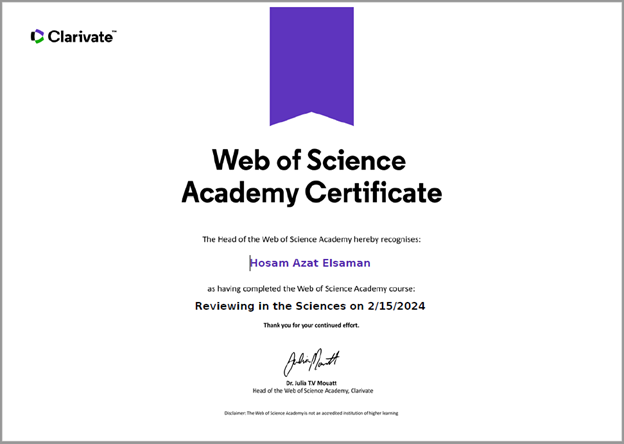Effective strategies to manage the teacher intellectual work productivity in distance learning
DOI:
https://doi.org/10.15549/jeecar.v8i4.840Keywords:
Georgia, university, intellectual work, productivity, management, strategy, distance learningAbstract
The article aims to empirically determine the effective strategies to manage intellectual work (IW) productivity (IWP) in distance learning (DL), for example, university teachers in Georgia. Based on the expert assessment methods, determining indicators for assessing the level of Teacher Intellectual Work Productivity (TIWP) of three large universities in Georgia and its current level was analyzed using the method of integral assessment. Using the ANOVA method, determined the main factors influencing the TIWP at DL. We use the decision tree to systematize the factors of influence to TIWP and substantiate effective management strategies, taking into account teachers' qualifications, age category, and competencies to ensure the continuity and quality of DL. The results allow flexibility in managing the TIWP in the DL conditions and determining the most effective management strategies, taking into account the characteristics of teachers and the current level of development of the TIWP.
References
Bohrer, A. (2008). One-sided and Two-sided Critical Values for Dixon’s Outlier Test for Sample Sizes up to n = 30. Economic Quality Control, 23, 1, 5-13. DOI: https://doi.org/10.1515/EQC.2008.5
Budiarti, I. (2017). Knowledge Management and Intellectual Capital - A Theoretical Perspective of Human Resource Strategies and Practices. European Journal of Economics and Business Studies, 8, 1, 148-155. DOI: https://doi.org/10.26417/ejes.v8i1.p148-155
Endovitsky, D.A., Lyubushin, N.P., Babicheva, N.E., & Zotova, E. (2019). Assessment of the Balance of Economic Entities’ Activity at Different Life Cycle Stages. Montenegrin Journal of Economics, 15, 2, 71-79.
Garda World. (2020). Georgia: Authorities introduce further COVID-19 restrictions November 3. https://www.garda.com/crisis24/news-alerts/396076/georgia-authorities-introduce-further-covid-19-restrictions-november-3-update-19
Goldhaber, D., & Startz, R. (2017). On the Distribution of Worker Productivity: The Case of Teacher Effectiveness and Student Achievement. Statistics and Public Policy, 4(1), 1-12. https://doi.org/10.1080/2330443X.2016.1271733 DOI: https://doi.org/10.1080/2330443X.2016.1271733
Google Forms. (2021). Factors Influencing the Productivity of Teacher's Intellectual Work in Distance Learning. https://docs.google.com/forms/d/e/1FAIpQLSdXu_9pUj-d2uhFV_QSOoI_V8rhC0W-cud4syFUMSzyOSlMjw/viewform
Guliyeva, S., Sadigov, Y., Guliyeva, N., Isayeva, L., & Aliyeva, S. (2021). Person-centered approach effectiveness in Human Resource Management in the agriculture of Azerbaijan. Journal of Eastern European and Central Asian Research (JEECAR), 8(2), 267-279. https://doi.org/10.15549/jeecar.v8i2.713 DOI: https://doi.org/10.15549/jeecar.v8i2.713
Hanushek, E.A., & Ettema, E. (2017). Defining Productivity in Education: Issues and Illustrations. The American Economist, 62(2), 165-183. https://doi.org/10.1177/0569434516688207 DOI: https://doi.org/10.1177/0569434516688207
Husch Blackwell. (2021). Georgia: State-by-State COVID-19 Guidance. https://www.huschblackwell.com/georgia-state-by-state-covid-19-guidance
Maghlaperidze, E., Kharadze, N., & Kuspliak, H. (2021). Development of Remote Jobs as a Factor to Increase Labor Efficiency. Journal of Eastern European and Central Asian Research (JEECAR), 8(3), 337-348. https://doi.org/10.15549/jeecar.v8i3.669 DOI: https://doi.org/10.15549/jeecar.v8i3.669
National Statistics Office of Georgia. (2021). https://www.geostat.ge/en
OECD. (2019a). The education system in Georgia. https://www.oecd-ilibrary.org/sites/bbc437ae-en/index.html?itemId=/content/component/bbc437ae-en
OECD. (2019b). TALIS 2018 Results (Volume I): Teachers and School Leaders as Lifelong Learners. Paris: TALIS, OECD Publishing. https://doi.org/10.1787/23129638 DOI: https://doi.org/10.1787/23129638
Örnek, A. ?., & Ayas, S. (2015). The Relationship between Intellectual Capital, Innovative Work Behavior and Business Performance Reflection. Procedia - Social and Behavioral Sciences, 195, 1387-1395. https://doi.org/10.1016/j.sbspro.2015.06.433 DOI: https://doi.org/10.1016/j.sbspro.2015.06.433
Our World in Data. (2021). Coronavirus (COVID-19) Cases. https://ourworldindata.org/covid-cases#global-comparison-where-are-confirmed-cases-increasing-most-rapidly
Owens, S. (2021). State of Education Funding (2021). Georgia Budget & Policy Institute https://gbpi.org/state-education-2021/
Pirtskhalaishvili, D., Paresashvili, N., & Kulinich, T. (2021). The gender aspects of career development and leadership in organizations. Journal of Eastern European and Central Asian Research (JEECAR), 8(2), 255-266. https://doi.org/10.15549/jeecar.v8i2.654 DOI: https://doi.org/10.15549/jeecar.v8i2.654
Strielkowski, W., Volchik, V., Maskaev, A., & Savko, P. (2020). Leadership and Effective Institutional Economics Design in the Context of Education Reforms. Economies, 8(2), 27. https://doi.org/10.3390/economies8020027 DOI: https://doi.org/10.3390/economies8020027
Suliman, A., & Mansor, A. (2018). The relationship between professional competence and productivity impacts teachers' job satisfaction at Junior High School Rawajitu Timur Lampung. International Journal of Engineering and Technology, 7, 453 - 457. DOI: https://doi.org/10.14419/ijet.v7i3.30.18358
Taherdoost, H. (2017). Determining Sample Size; How to Calculate Survey Sample Size. International Journal of Economics and Management Systems, 2, 237-239.
Trading Economics. (2021). Georgia - GINI Index. https://tradingeconomics.com/georgia/gini-index-wb-data.html
Tsymbalenko, N.V., Tarasenko, I.O., & Bielialov, T.E. (2019). The impact of demographic processes on forming student body in Ukraine. Revista Espacios, 40(12), 8. https://www.revistaespacios.com/a19v40n12/a19v40n12p08.pdf
UNESCO-UIS. (2021). http://data.uis.unesco.org/Index.aspx
Utama, I., Sagala, S., & Sitompul, H. (2017). The Effect of Lecturer Competence on Work Productivity of Private Higher Education Lecturer in Aceh. Advances in Social Science, Education and Humanities Research, 104, 94-98. DOI: https://doi.org/10.2991/aisteel-17.2017.21
Vasiljeva, M., Neskorodieva, I., Ponkratov, V., Kuznetsov, N., Ivlev, V., Ivleva, M., Maramygin, M., & Zekiy, A. A. (2020). Predictive Model for Assessing the Impact of the COVID-19 Pandemic on the Economies of Some Eastern European Countries. J. Open Innov. Technol. Mark. Complex., 6, 92. https://doi.org/10.3390/joitmc6030092 DOI: https://doi.org/10.3390/joitmc6030092
Downloads
Published
How to Cite
Issue
Section
License
The JEECAR journal allows the author(s) to hold the copyright and publishing rights of their own manuscript without restrictions.
This journal applies the Creative Attribution Common License to works we publish, and allows reuse and remixing of its content, in accordance with a CC-BY 4.0 license.
Authors are free to: Share — copy and redistribute the material in any medium or format and Adapt — remix, transform, and build upon the material for any purpose, even commercially.
Under the following terms: Attribution — You must give appropriate credit, provide a link to the license, and indicate if changes were made. You may do so in any reasonable manner, but not in any way that suggests the licensor endorses you or your use.
No additional restrictions — The author may not apply legal terms or technological measures that legally restrict others from doing anything the license permits.
The JEECAR Journal is committed to the editorial principles of all aspects of publication ethics and publication malpractice as assigned by the Committee on Public Ethics.












